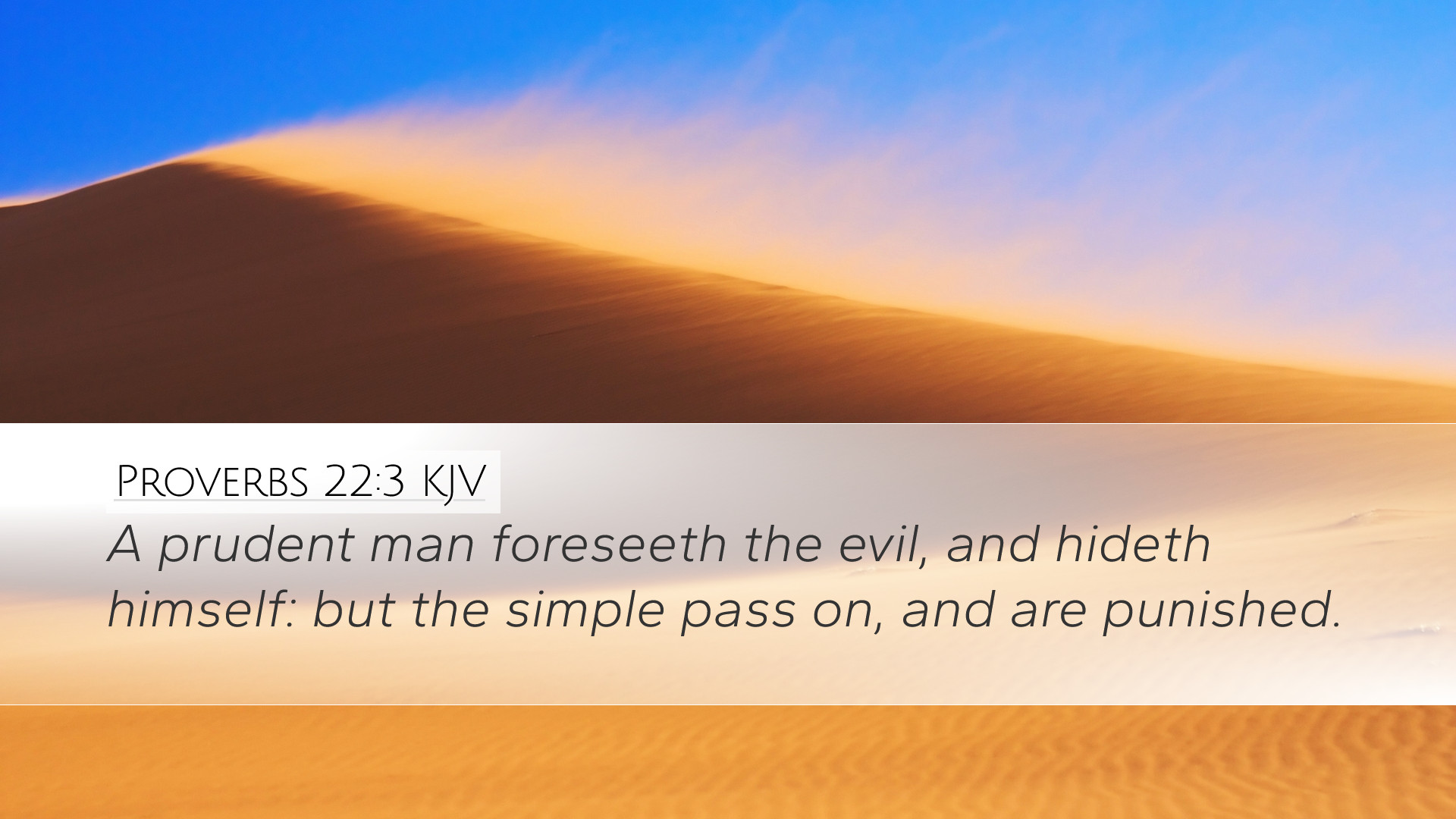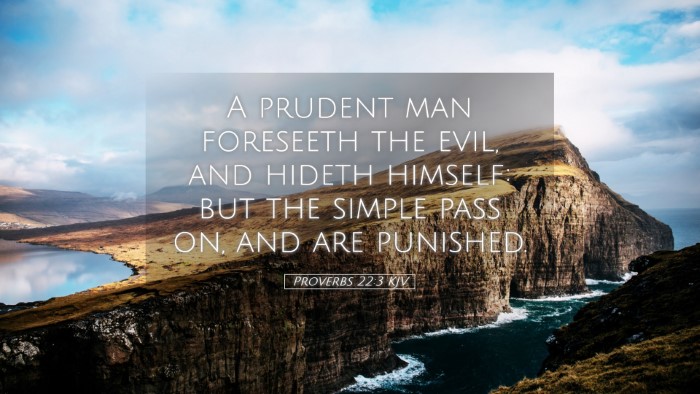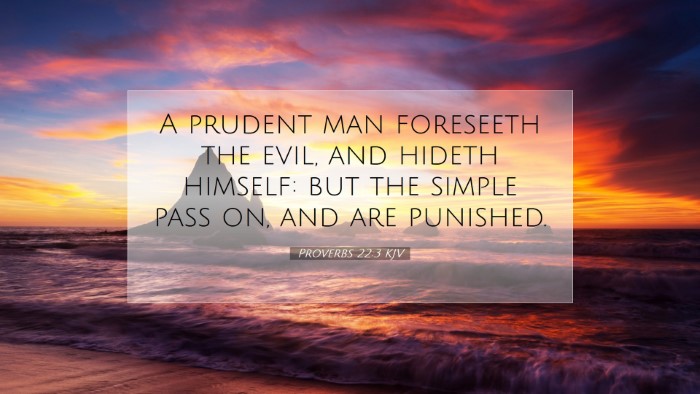Commentary on Proverbs 22:3
Proverbs 22:3 (KJV): "A prudent man foreseeth the evil, and hideth himself: but the simple pass on, and are punished."
Introduction
The book of Proverbs serves as a treasury of wisdom, offering guidance on how to live a life pleasing to God. This verse encapsulates the essence of prudence, contrasting the wise man's foresight with the foolishness of the simple. Various commentaries provide a depth of insight into the meaning and implications of this verse.
Key Themes
- Prudence and Foresight: The 'prudent man' is characterized by his ability to foresee danger.
- The Nature of Evil: Understanding what constitutes 'evil' and the necessity of avoiding it.
- The Consequence of Simplicity: The contrasting fate of the simple who disregard warnings.
Commentary Insights
Matthew Henry's Commentary
According to Matthew Henry, this verse emphasizes the importance of prudence in an individual's life. He elaborates that prudence is not merely foresight but also an active response to potential danger. A prudent person does not passively wait for calamity but takes steps to hide from it and protect himself. The simple, lacking this foresight, speak to a level of negligence or carelessness. Henry encourages believers to cultivate wisdom that actively seeks to identify and avoid pitfalls.
Albert Barnes' Commentary
Albert Barnes also highlights the contrast between the wise and the simple. He notes that the 'evil' referred to can include various forms of moral and spiritual danger. Barnes stresses that wisdom leads to actionable insights—those who foresee evil take measures to avoid it. He mentions that this passage reflects a broader theological principle in the book of Proverbs: that wisdom is not merely theoretical but is meant to be applied practically in life. His insights advocate for an active discipleship that not only knows the Word but acts on it.
Adam Clarke's Commentary
Adam Clarke emphasizes the proactive nature of a prudent individual. He notes that wisdom and foresight allow one to navigate life's trials and tribulations effectively. Clarke suggests that the 'evil' can also refer to moral decay, and by avoiding such evil, a person protects not only themselves but also their community. He warns that ignoring this wisdom can lead to severe consequences, which serves as both a cautionary tale and a moral directive to live wisely.
Practical Applications
For pastors, students, theologians, and Bible scholars, this proverb invites reflection on practical wisdom in today's context:
- Recognizing Danger: Encouragement to develop discernment skills in recognizing moral and ethical threats.
- Taking Action: Application of prudence involves not just foreseeing danger but acting wisely to prevent harm.
- Community Impact: Understanding that personal wisdom can affect the broader community, advocating for collective prudence.
Conclusion
Proverbs 22:3 serves as a profound reminder of the necessity of prudence and foresight in living a righteous life. The insights from renowned commentaries reveal that wisdom is defined not merely by knowledge but by the application of that knowledge in avoiding harm and embracing the path of righteousness. As believers seek to apply this wisdom, they are encouraged to continuously cultivate discernment and proactive behavior that reflects a faith deeply rooted in the teachings of Scripture.


